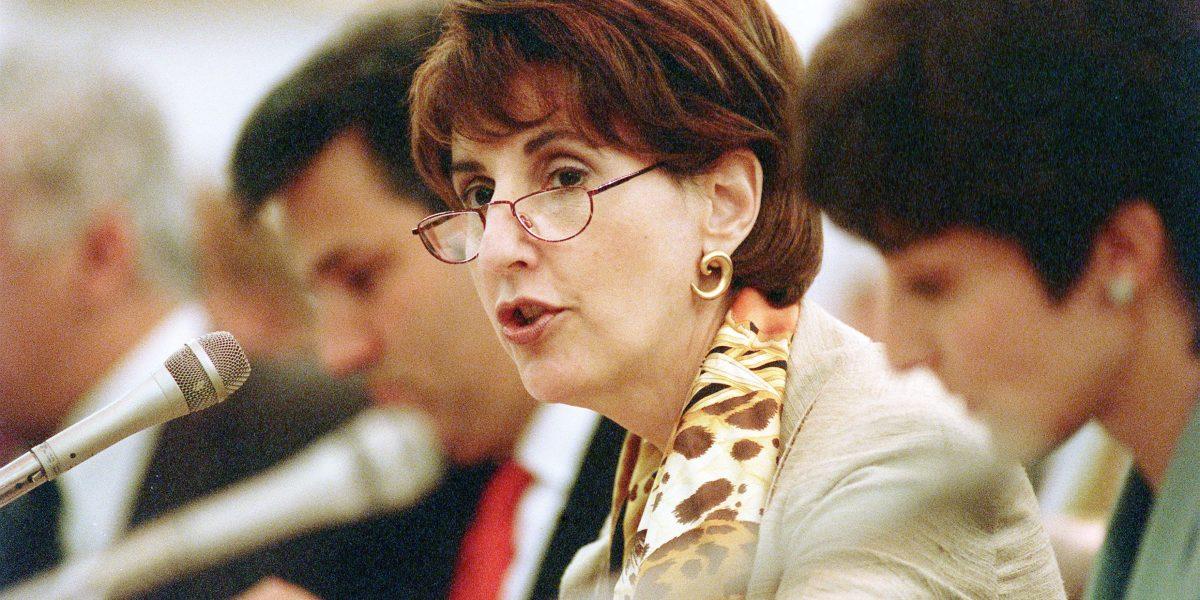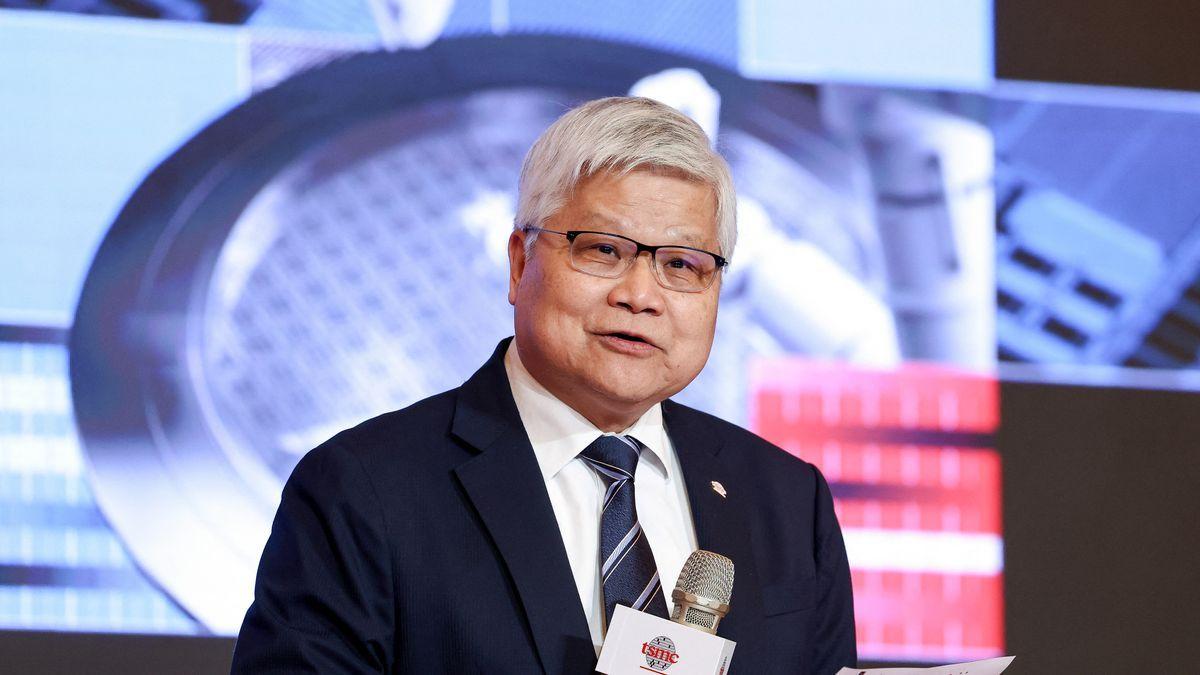Ex-Intel CEO Skeptical of TSMC's $100 Billion US Investment Impact on Chipmaking Leadership
2 Sources
2 Sources
[1]
TSMC's $100 billion pledge won't resurrect US chipmaking, says Intel's ex-CEO
Taiwan Semiconductor Manufacturing Company's pledge to spend an extra $100 billion on advanced manufacturing plants in the US will do little to help the country restore its global lead in chipmaking, according to Pat Gelsinger, who was forced out as chief executive of Intel late last year. His comments come less than a month after the White House hailed the investment from TSMC, the world's largest chip manufacturer, as an important milestone in efforts to bring production of the most advanced semiconductors back on to US soil. "If you don't have R&D in the US, you will not have semiconductor leadership in the US," Gelsinger said. "All of the R&D work of TSMC is in Taiwan, and they haven't made any announcements to move that." The former Intel chief added, however, that President Donald Trump's tariff threats had at least been "incrementally beneficial" for the US by giving chip manufacturers like TSMC more incentive to locate their facilities in the country. The Trump administration has leaned heavily on TSMC amid doubts about Intel's ability to regain the global manufacturing lead it lost to the Taiwanese company a decade ago. Gelsinger's departure late last year was widely seen as a repudiation by the company of his complex turnaround plan, which included trying to rebuild Intel's manufacturing base. His successor Lip-Bu Tan, appointed earlier this month, has yet to set out his strategy. The former Intel chief executive would not comment on whether he had fallen out with Intel's directors over strategy, but indicated he had lost their confidence less than four years into his five-year plan. "I wasn't done with the five-plus years when the board made a directional change," he said. TSMC has said that the only development work it plans to carry out it in the US will be on the process technology it already has in production, and that its core research and development will remain in Taiwan. "Unless you're designing the next-generation transistor technology in the US, you do not have leadership in the US," said Gelsinger. He was speaking in an interview this week after becoming a partner at Playground Global, a Silicon Valley venture capital firm that specialises in "deep tech" investments, including in fields like quantum computing and new chip making technologies. Despite losing out in the cutting-edge process technology used in chip manufacturing, Gelsinger said the US still had a global edge in many advanced technologies that are likely to determine future leadership in artificial intelligence. He also brushed off suggestions that Chinese AI company DeepSeek, which shocked US technology experts and investors with its low-cost technology earlier this year, had posed a serious challenge to American companies. "DeepSeek was good engineering, it wasn't core innovations. It wasn't major breakthroughs," he said. Start-ups backed by Playground include xLight, whose advanced lasers could play a part in future generations of lithography needed to make chips. Other investments include PsiQuantum, the first quantum computing company that has embarked on building a large-scale quantum machine, and d-Matrix, one of a number of start-ups trying to leapfrog Nvidia in making the chips needed to run AI systems, a task known as inference. While at Intel, Gelsinger failed to make up ground against Nvidia in AI chips, though he said this week that new technologies were needed to bring AI into the mainstream. "AI, as exciting as it is, is much too expensive," he said. "We have to have dramatic reductions in the cost of inference for it to be truly deployed in every aspect of humanity." © 2025 The Financial Times Ltd. All rights reserved. Not to be redistributed, copied, or modified in any way.
[2]
TSMC's $100bn pledge to Trump will not revive US chipmaking, says ex-Intel chief
Richard Waters in San Diego and Michael Acton in San Francisco Taiwan Semiconductor Manufacturing Company's pledge to spend an extra $100bn on advanced manufacturing plants in the US will do little to help the country restore its global lead in chipmaking, according to Pat Gelsinger, who was forced out as chief executive of Intel late last year. His comments come less than a month after the White House hailed the investment from TSMC, the world's largest chip manufacturer, as an important milestone in efforts to bring production of the most advanced semiconductors back on to US soil. "If you don't have R&D in the US, you will not have semiconductor leadership in the US," Gelsinger said. "All of the R&D work of TSMC is in Taiwan, and they haven't made any announcements to move that." The former Intel chief added, however, that President Donald Trump's tariff threats had at least been "incrementally beneficial" for the US by giving chip manufacturers like TSMC more incentive to locate their facilities in the country. The Trump administration has leaned heavily on TSMC amid doubts about Intel's ability to regain the global manufacturing lead it lost to the Taiwanese company a decade ago. Gelsinger's departure late last year was widely seen as a repudiation by the company of his complex turnaround plan, which included trying to rebuild Intel's manufacturing base. His successor Lip-Bu Tan, appointed earlier this month, has yet to set out his strategy. The former Intel chief executive would not comment on whether he had fallen out with Intel's directors over strategy, but indicated he had lost their confidence less than four years into his five-year plan. "I wasn't done with the five-plus years when the board made a directional change," he said. TSMC has said that the only development work it plans to carry out it in the US will be on the process technology it already has in production, and that its core research and development will remain in Taiwan. "Unless you're designing the next-generation transistor technology in the US, you do not have leadership in the US," said Gelsinger. He was speaking in an interview this week after becoming a partner at Playground Global, a Silicon Valley venture capital firm that specialises in "deep tech" investments, including in fields like quantum computing and new chip making technologies. Despite losing out in the cutting-edge process technology used in chip manufacturing, Gelsinger said the US still had a global edge in many advanced technologies that are likely to determine future leadership in artificial intelligence. He also brushed off suggestions that Chinese AI company DeepSeek, which shocked US technology experts and investors with its low-cost technology earlier this year, had posed a serious challenge to American companies. "DeepSeek was good engineering, it wasn't core innovations. It wasn't major breakthroughs," he said. Start-ups backed by Playground include xLight, whose advanced lasers could play a part in future generations of lithography needed to make chips. Other investments include PsiQuantum, the first quantum computing company that has embarked on building a large-scale quantum machine, and d-Matrix, one of a number of start-ups trying to leapfrog Nvidia in making the chips needed to run AI systems, a task known as inference. While at Intel, Gelsinger failed to make up ground against Nvidia in AI chips, though he said this week that new technologies were needed to bring AI into the mainstream. "AI, as exciting as it is, is much too expensive," he said. "We have to have dramatic reductions in the cost of inference for it to be truly deployed in every aspect of humanity."
Share
Share
Copy Link
Pat Gelsinger, former Intel CEO, argues that TSMC's $100 billion investment in US manufacturing won't revive American chipmaking leadership without corresponding R&D efforts. He discusses the challenges in the semiconductor industry and the future of AI technology.

TSMC's Investment and US Chipmaking Leadership
Taiwan Semiconductor Manufacturing Company (TSMC) has pledged to invest an additional $100 billion in advanced manufacturing plants in the United States. However, Pat Gelsinger, the former CEO of Intel who was recently forced out, argues that this investment alone will not be sufficient to restore America's global lead in chipmaking
1
2
.Gelsinger emphasizes the critical role of research and development (R&D) in maintaining semiconductor leadership. He states, "If you don't have R&D in the US, you will not have semiconductor leadership in the US"
1
. The former Intel chief points out that TSMC's core R&D operations remain in Taiwan, with no announced plans to relocate them to the US2
.White House Response and Trump's Influence
The White House has hailed TSMC's investment as a significant milestone in efforts to bring advanced semiconductor production back to US soil. Gelsinger acknowledges that former President Donald Trump's tariff threats have been "incrementally beneficial" in incentivizing chip manufacturers like TSMC to establish facilities in the country
1
2
.Intel's Leadership Changes and Strategy
Gelsinger's departure from Intel late last year was widely interpreted as a rejection of his complex turnaround plan, which included rebuilding Intel's manufacturing base. His successor, Lip-Bu Tan, appointed earlier this month, has yet to outline his strategy for the company
1
2
.US Technological Edge and AI Leadership
Despite losing ground in cutting-edge chip manufacturing processes, Gelsinger maintains that the US still holds a global advantage in many advanced technologies crucial for future leadership in artificial intelligence (AI)
1
. He dismisses the notion that Chinese AI company DeepSeek poses a serious challenge to American companies, describing their technology as "good engineering" rather than core innovations or major breakthroughs2
.Related Stories
Future of AI and Chip Technology
Gelsinger has joined Playground Global, a Silicon Valley venture capital firm specializing in "deep tech" investments. The firm backs startups like xLight, PsiQuantum, and d-Matrix, which are working on advanced technologies in areas such as quantum computing and AI chip development
1
2
.Addressing the future of AI, Gelsinger emphasizes the need for cost reduction: "AI, as exciting as it is, is much too expensive. We have to have dramatic reductions in the cost of inference for it to be truly deployed in every aspect of humanity"
1
2
.Challenges in the Semiconductor Industry
The semiconductor industry faces ongoing challenges, including the shift of manufacturing leadership from the US to Taiwan over the past decade. The Trump administration's focus on TSMC reflects doubts about Intel's ability to regain its global manufacturing lead
1
2
. Gelsinger's comments highlight the complex interplay between government policy, corporate strategy, and technological innovation in this critical sector.References
Summarized by
Navi
Related Stories
TSMC Announces $100 Billion Investment in US Chip Manufacturing, Focusing on AI Chips
04 Mar 2025•Technology

TSMC Founder Criticizes Intel's Strategy, Suggests Focus on AI Over Foundry Business
09 Dec 2024•Business and Economy

Former Intel Board Members Call for 'Operation Warp Speed II' to Save US Chip Manufacturing
07 Aug 2025•Technology

Recent Highlights
1
ByteDance's Seedance 2.0 AI video generator triggers copyright infringement battle with Hollywood
Policy and Regulation

2
Demis Hassabis predicts AGI in 5-8 years, sees new golden era transforming medicine and science
Technology

3
Nvidia and Meta forge massive chip deal as computing power demands reshape AI infrastructure
Technology





